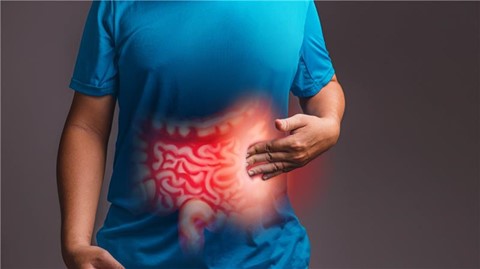Ulcerative colitis (UC) is a disorder in which the lining of the large intestine (colon) and rectum become inflamed (damaged). It is a form of inflammatory bowel disease (IBD).
Symptoms:
The symptoms of UC often get worse over time. Early symptoms may include:
- Diarrhea or urgent bowel movements
- Abdominal cramps
- General weakness
- Nausea
- Weight loss
- Anemia (reduced number of red blood cells)
Late symptoms include:
Blood, mucous, or pus in the stools
- Severe cramps
- Fever
- Skin rashes
- Mouth sores
- Joint pain
- Red, painful eyes
- Loss of fluids and nutrients
Causes:
The primary cause of ulcerative colitis is due to:
Genes
Abnormal immune reactions
Microbiome
Environment
Risk Factors:
Your risk of getting UC increases due to the following:
Anyone including young children, can get ulcerative colitis. Your chance of getting it is little higher if you:
- Have a close relative who has inflammatory bowel disease (IBD)
- Are between 15 and 30 years old or older than 60 years
- Eat a high-fat diet
- Use of drugs like (NSAIDS), ex: ibuprofen
Diagnosis:
To diagnose UC, your doctor must rule out other underlying illnesses. After a physical exam, your doctor may order the below tests:
- Blood tests: To rule out anemia (low level of iron in your blood)
- Stool samples: To check for the infection caused by parasites (tiny organisms that can live in a person’s body)
- Imaging tests: To detect abnormality in your colon and rectum, your doctor will order the tests like a computed tomography (CT) scan or magnetic resonance imaging (MRI) scan
- Endoscopic tests: This test is used to evaluate the health of the rectum and colon. Standard endoscopic tests include colonoscopy and sigmoidoscopy
Treatment:
Your doctor will prescribe the below medications:
- Anti-inflammatory medications: First-line medications that can treat moderate to severe forms of UC
- Immune system suppressors: these medications reduce inflammation by suppressing the immune response
- Biologics: these medications are reserved for patients with severe UC, it works by blocking different proteins that are responsible for causing inflammation
If medications have no required effect on your quality of life, or there is symptoms severe flare-up which is not responding to medicines. In that case, your doctor will recommend surgery as a treatment option.
Surgery for ulcerative colitis involves permanent removal of the colon this procedure is called colectomy.
Once the colon is removed, your small intestine will be used to pass the waste material out of your body instead of your colon.
Diet changes:
General dietary suggestions that help you deal with UC:
- Limiting the intake of dairy products
- Eating small meals more frequently
- Drinking plenty of liquids
- Reducing the intake of caffeinated drinks like (tea and coffee)


